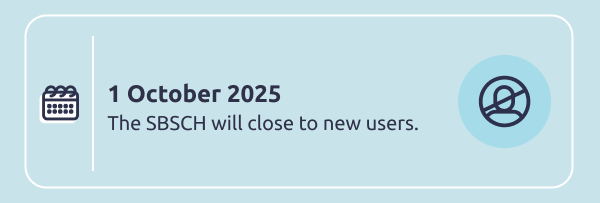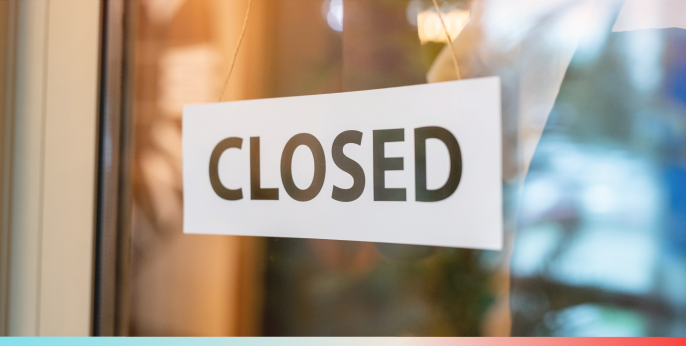If you're a small business owner in Australia, chances are you've used the Small Business Superannuation Clearing House (SBSCH), a free service provided by the Australian Taxation Office (ATO) to help employers meet their superannuation guarantee (SG) obligations.
But as part of the government's upcoming Payday Super reforms, the SBSCH will close to new users from 1 October 2025 and is being pahsed out entirely. This change is part of a broader move toward daster, more accurate, and fully digital super processing across Australia's payroll landscape.
In this article, we'll explain what's happening, what it means for your business, and how you can prepare, including how Microkeeper's built-in ATO-compliant super clearing house (powered by Beam) can help you transition smoothly, at no extra cost.

.png)
What is the Small Business Super Clearing House (SBSCH)
The SBSCH is an online service run by the ATO Super Clearing House that allows eligibile small businesses to pay all their employees' super contributions in one place. Rather than sending contributions to multiple funds individually, employers submit one payment to the SBSCH, which then distributes the correct amounts to each employee's nominated super fund.
This was designed to make life easier for small businesses that might not have access to sophisticated payroll systems. The service is free for:
- Small businesses with 19 or fewer employees, or
- Annual aggregate turnover of less than $10 million.
For years, the SBSCH has been a reliable and cost-effective way to manage super obligations, but as superannuataion systems evolve, so too must the tools that support them.
Why the SBSCH is closing
The decision to close the Small Business Super Clearing House to new users is part of a wider effort to modernise the superannuation system and align it with the government's upcoming Payday Super reforms.
From 1 July 2026, employers will be required to pay super contributions at the same time as wages (instead of quarterly), ensuring faster investment and better protection for employees' retirement savings.
To support this shift, the ATO has been redesigning the underlying data and payment systems, including the SuperStream standards that connect payroll software, clearing houses, and super funds. In doing so, the ATO confirmed that the SBSCH will close to new users (and current users further down) as it transitions to newer, faster infrastructure.
According to the ATO's July 2025 update:
The Small Business Superannuation Clearing House (SBSCH) will close to new users from 1 October 2025. Current users are encouraged to transition to an alternative service before 1 July 2026.
In other words, small businesses will need to start planning for a new clearing house solution that meets the upcoming Payday Super requirements.
What this means for small businesses
For small businesses, the closure of the ATO Super Clearing House marks a significant change in how super payments are managed.
Here's what you need to know:
- No new registrations: after 1 October 2025, businesses won't be able to sign up for the SBSCH.
- Current users must transition: if you're currently using the SBSCH, you'll need to migrate to another clearing house before the closure on 1 July 2026.
- Payday Super compliance: your new clearing house must be capable of processing super contributions on a pay-per-cycle basis, within seven calendar of payment.
- Data accuracy bcomes critical: under Payday Super, contributions are only considered "paid" when they reach the employee's super fund. Any errors could lead to delays, penalties, or missed compliance deadlines.
These changes mean small businesses will benefit most from integrated payroll and super systems, where payment data flows automatically from your payroll to your clearing house, reducing the risk of errors and missed payments.
Why Microkeeper is a smarter alternative
For current SBSCH users, the good news is that there is an alternative that will not disrupt your current budget.
In Microkeeper, every plan includes integrated super processing through Beam, an ATO-approved SuperStream-compliant clearing house, at no additional cost.
That means:
- You can process and pay super directly within your payroll system.
- Contributions are automatically calculated each pay run, ready for payment.
- You avoid manual upload or external clearing house logins.
- Payment records, employee fund details, and audit trails stay in one system.
Microkeeper + Beam provides:
- ATO and SuperStream compliance: meeting all current and upcoming Payday Super data standards.
- Automatic validation: Beam checks your data before payment, reducing errors that could cause delays or fund rejections.
- Security and reliability: all transctions are encrypted and tracked, ensuring contributions reach the right fund.
- No extra cost: super processing is built into your existing subscription.
So while the Small Business Super Clearing House winds down, Microkeeper users alrready have a future-proof, compliant alternative ready to go.
How to transition before the SBSCH closure
If you currently use the SBSCH, it's best not to wait until 2026 to make the switch. Here's how to get started early:
- Review your current process: check how often you pay super and whether your payroll system integrates directly with a clearing house.
- Choose a compliant provider: select a clearing house that's SuperStream-compliant and ready for Payday Super, like Microkeeper's built-in Beam integration.
- Update employee fund details: ensure all super fund information and TFNs are current to avoid rejections under the new 7-day rule.
- Test your workflow: run a simulated pay run to ensure super is calculated and processed automatically. This helps identify any issues earlier.
- Stay informed: follow ATO updates about the SBSCH phase-out and the latest Payday Super development at ato.gov.au/paydaysuper.
The futureof super payments: integrated, automated, and effortless
The end of the Small Business Super Clearing House is more than just the closure of a government service, it's part of a wider transformation in how Australia handles superannuation.
The future of payroll and super processing is real-time, automated and data-driven, and that's exactly where Microkeeper already operates.
With built-in super clearing, automated award interpretation, and pay-per-cycle reconciliation, Microkeeper helps small businesses:
- Stay compliant with ATO and Fair Work requirements,
- Simplify payroll and super in one unified system, and
- Avoid the manual work that causes errors or missed payments.
If you're still relying on the ATO Super Clearing House (SBSCH), now is the perfect time to plan your transition.
By moving to a system like Microkeeper, you'll not only stay compliant with the upcoming Payday Super reforms but also streamline your entire payroll process, all without adding extra costs to your business.
Super processing doesn't need to be complex or costly.
With Microkeeper, it's built-in, automated, and ready for the future of Australian payroll.




.png)




